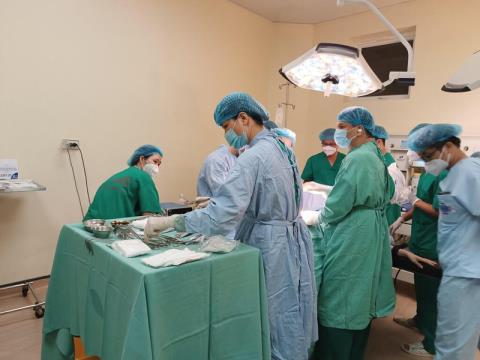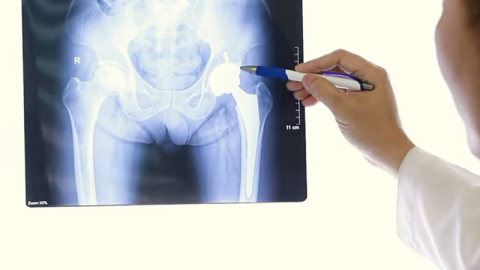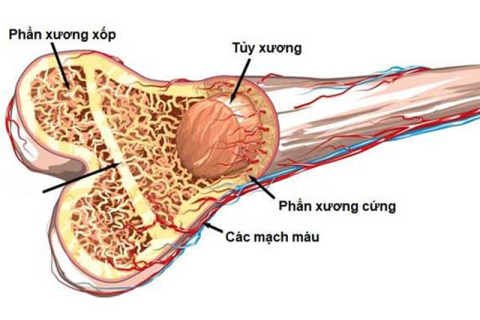Ovarian cancer in the early stages often has few manifestations and symptoms are easily confused with digestive diseases, so most patients are detected at a late stage, usually stage 3. So ovarian cancer How is phase 3?
Stage 3 ovarian cancer is when cancer cells have spread from the pelvis to the peritoneal cavity or to the lymph nodes behind the peritoneum. According to statistics, about 60% of ovarian cancer cases are diagnosed at stage 3. Let's find out with SignsSymptomsList the treatment methods and what the prognosis is like at this stage!
The basics of stage 3 ovarian cancer
Stage 3 ovarian cancer is when cancer cells are found in one or both ovaries. At this stage, the tumor has spread to the peritoneum or retroperitoneal lymph nodes such as the iliac and para-aortic lymph nodes. In addition, tumor cells can also spread to the liver or spleen.
Specifically, stage 3 ovarian cancer is divided into 3 stages, including:
- Stage 3a (stage IIIA): Microscopic peritoneal metastasis with or without retroperitoneal lymph node metastasis.
- Stage 3b (stage IIIB): Macroperitoneal metastatic cancer cells, no more than 2cm in diameter, with or without retroperitoneal lymph node metastasis.
- Stage 3c (stage IIIC): Macroscopic metastatic peritoneal cancer cells, larger than 2cm in diameter, with or without metastasis to retroperitoneal lymph nodes, liver capsule, and spleen.
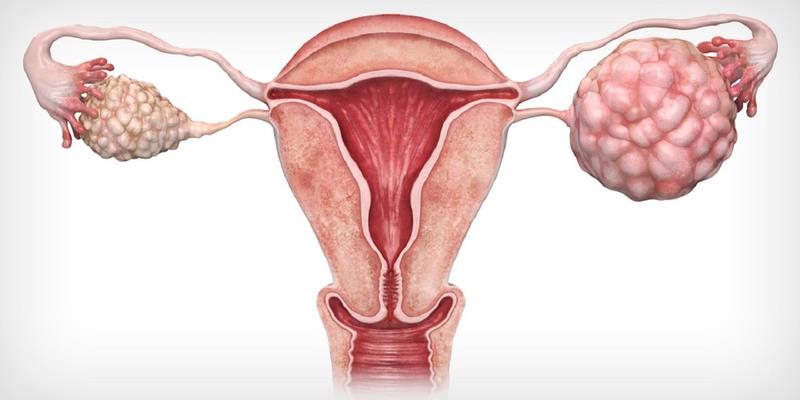
Stage 3 ovarian cancer is divided into 3 sub-stages
How is stage 3 ovarian cancer treated?
The goals of treatment for stage 3 ovarian cancer are to control and prevent tumor progression, relieve symptoms, and prolong survival.
Treatments for stage 3 ovarian cancer are similar to stage 2 ovarian cancer in that they include surgery, chemotherapy , and radiation therapy.
Based on a number of factors, doctors will diagnose and decide whether the patient is operable and whether chemotherapy should be given before or after surgery. For example, how far the cancer has grown or spread; what is the patient's health status, age, comorbidities and wishes; then see if surgery can completely remove the tumor or not.
Surgery
The surgical approach to treat stage 3 ovarian cancer is the same as for stage 2 ovarian cancer. Specifically, the doctor will perform a total hysterectomy, 2 appendages, and anastomosis, trying to most thoroughly removed. In cases where the cancer has spread to the lymph nodes, lymph node dissection may also be performed.
After surgery, the patient may receive adjuvant chemotherapy. The aim is to remove the microscopic cancerous tumors that may remain, in order to prevent the disease from recurring, and to prolong the patient's survival time.
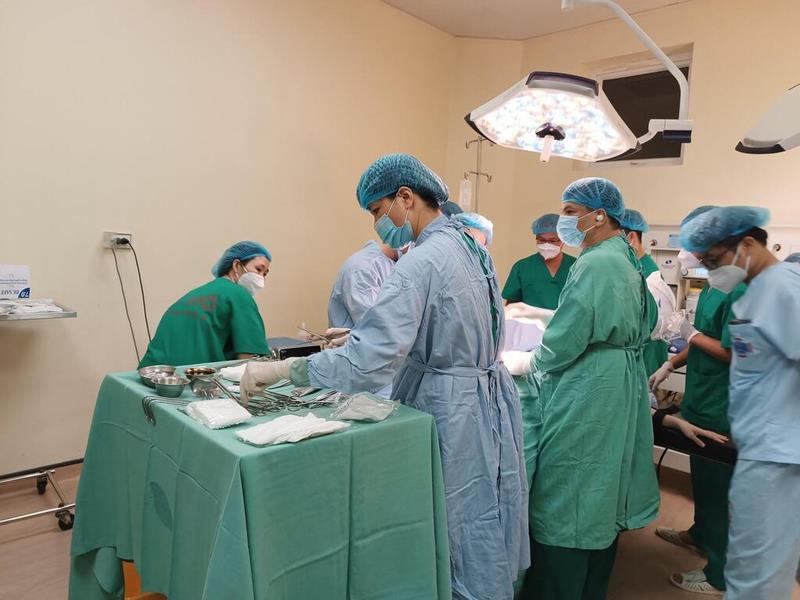
Treatment of stage 3 ovarian cancer with surgery
Valence
Chemotherapy after surgery
Adjuvant chemotherapy after surgery helps to reduce the risk of cancer recurrence and prolong survival for patients. But if surgery cannot remove all of the tumor, chemotherapy after surgery aims to destroy all or shrink the remaining tumor. In some cases, a patient may need to have another surgery if necessary, also known as a "review" surgery.
Chemotherapy before surgery
A patient may be prescribed chemotherapy before surgery if the doctor finds that immediate surgery will not be able to remove all of the tumor or the patient is not healthy enough to have surgery in the first place. At this time, chemotherapy helps to shrink the tumor and make it easier to remove with surgery.
For some patients, doctors may prescribe certain biologic or targeted drugs (called bevacizumab) in combination with chemotherapy to increase the effectiveness of treatment.
Radiation therapy for ovarian cancer
Radiation therapy as adjuvant therapy after surgery or in patients unresponsive to chemotherapy. Radiation therapy for ovarian cancer patients can be local radiation or external irradiation of the entire abdomen and pelvis with the aim of destroying a part of cancer cells, slowing tumor growth.
Besides, some other treatments can also be done, such as treating ascites or intestinal obstruction ... to slow the growth of the tumor and relieve symptoms.
Radiation therapy is also an effective treatment method
Prognosis of stage 3 ovarian cancer
Ovarian cancer is a very common gynecological cancer, especially dangerous and has a high mortality rate, largely because women are often diagnosed late. Specifically:
- Stage 3a: The tumor may be in one or both ovaries or fallopian tubes. Cancer at this stage can grow into organs outside the pelvis.
- Stage 3b: The tumor may be in one or both ovaries or fallopian tubes. Cancer is no larger than 2cm, can also spread or grow into organs outside the pelvis.
- Stage 3c: Cancer is present in one or both ovaries, fallopian tubes, or primary peritoneal cancer. Tumor is larger than 2cm, may have spread, growing into organs outside the pelvis.
In fact, besides the advanced stage of the cancer, the survival prognosis of stage 3 ovarian cancer patients depends on many other factors. According to the American Cancer Society:
- Stage 3a ovarian cancer has about a 62% chance of survival.
- Stage 3b ovarian cancer has about a 53% chance of survival.
- Stage 3c ovarian cancer has about a 41% chance of survival.
Survival rates are based on studies of large numbers of people, but can vary from case to case. Because it depends on many other factors such as age, health condition, type of cancer and the body's ability to respond to treatment.
Through the above article, SignsSymptomsList has provided you with some basic information about stage 3 ovarian cancer . If you experience the above situation, immediately go to reputable hospitals for timely examination and treatment. Wishing you all the best and stay healthy!
